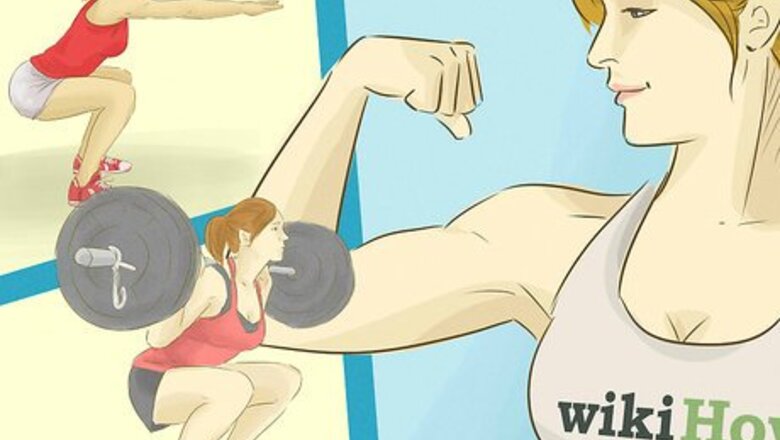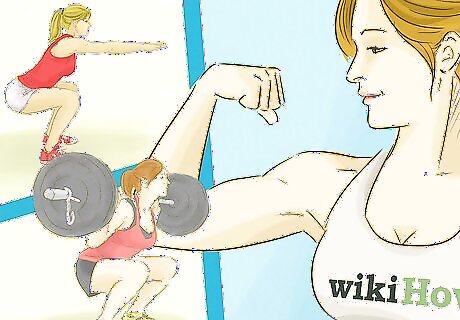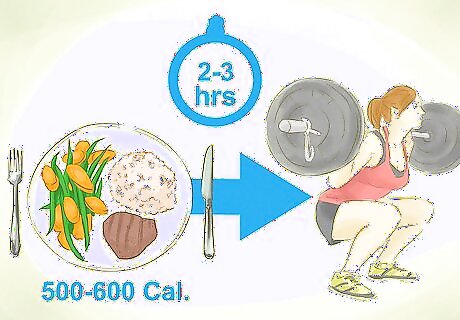
views
Metabolic Age: Definition

Metabolic age refers to how well you convert calories into energy for your age. Your metabolism is all the chemical processes your body uses to convert calories from food into energy and stay alive. That includes processes like breathing, circulating your blood, digesting your food, and repairing your cells. Metabolic age measures the minimum amount of calories you need to convert into energy daily to survive, compared to other people your age. If you need fewer calories for your age group, for example, then your metabolic age is younger than your calendar age.
What does metabolic age mean for your health?
A young metabolic age may indicate good physical and mental health. One study showed that people with a younger metabolic age relative to their calendar age had lower blood pressure and a lower body mass index (BMI) than participants with an older metabolic age. The inverse is also true—another study showed that a higher metabolic age was associated with an increased risk of dementia. Yet another study suggested that the higher a person's metabolic age, the more at risk they are to develop metabolic syndrome, which is where you have 3 or more health conditions that raise your risk of having a stroke, heart disease, and type 2 diabetes.
What should your metabolic age be?
A good metabolic age is equal to or lower than your chronological age. For example, if you're 30 years old in calendar years and your metabolic age is 28, that's a great thing! If it's 40, though, that might be less than ideal. It means you're having to burn more calories than normal for someone your age to support your body's basic functions. In that case, you may want to talk to your doctor about what you can do to improve your BMR and your overall health.
How to Improve Metabolic Age
Drink half your weight in ounces (milliliters) of water daily. Mahallati says this is essential to improving your BMR, which will also improve your metabolic age. To calculate how much water you need, take your weight in pounds (or kilograms) and divide it in half, then drink that in ounces (or milliliters). For example, says Mahallati, "if you weigh 160 pounds, you need to drink 80 ounces of water per day."
Eat plenty of protein at every meal. Protein does so much for our health! It helps us stay fuller longer, so we have more energy. It also helps us build muscle, maintain a healthy weight, and have stable blood sugar. Mahallati advises to eat it at "every meal and snack" throughout the day.
Practice high-intensity interval training (HIIT) and weightlifting. HIIT is a type of exercise where you perform intense physical activities in short bursts of time. For example, you might spend 20 minutes doing jumping jacks, push-ups, and squats one after the other. HIIT has lots of benefits, including improving your BMR and helping you burn calories. Mahallati recommends weightlifting, as well, "to gain muscle and burn more calories during other exercises."
Take in more vitamin B and vitamin D to increase your metabolism. Different types of vitamin B, such as thiamine (B1), riboflavin (B2), and biotin (B7), help your body metabolize important nutrients like glucose, fatty acids, and amino acids. Meanwhile, low amounts of vitamin D have been associated with metabolic disorders like diabetes and obesity. Mahallati says to make sure you're taking in both nutrients to support your metabolism. You can get vitamin B from foods like whole grains, eggs, beef, fish, and dark green vegetables (e.g., broccoli, brussels sprouts, kale, and spinach). You can get vitamin D from spending more time out in the sun. Just remember to wear sunscreen! Another option is to take vitamin D3, a supplement version.
How is metabolic age calculated?

Metabolic age is measured by comparing your BMR to other people your age. BMR stands for "basal metabolic rate." It's the minimum number of calories your body needs to stay alive. Scientists determine a person's metabolic age by comparing their BMR with other people in their age group. This is different from your age in years. For example, you might be 40 years old and have a BMR similar to a 30-year-old. Researchers also consider factors like your height and weight and, if you're a woman, whether or not you're pregnant. One study measured participants' blood pressure and dietary intake, as well. There isn't much research on metabolic age yet. That means it's impossible for you to calculate it on your own without the help of a doctor or a team of researchers. You can still calculate your BMR, which will give you an idea of how well you're converting calories into energy compared to other adult men and women.
How to Calculate BMR
Use the Harris-Benedict equation to get a rough idea of your BMR. Ideally, you should calculate your BMR in a lab to get the most accurate reading. Most people don't have access to that type of test, though. If you want to get more insight into your metabolic health at home, use the Harris-Benedict equation for BMR: For men: BMR = 88.362 + (13.397 x weight in kg) + (4.799 x height in cm) - (5.677 x calendar age). The average BMR for adult men is 1696 calories daily. For women: BMR = 447.593 + (9.247 x weight in kg) + (3.098 x height in cm) - (4.330 x calendar age). The average BMR for adult women is 1410 calories daily. Example: A woman who weighs 60 kg (132.3 lb), is 175 cm (68.9 in) tall, and is 35 years old may have a BMR of 1393 calories per day. That's a little below average, but not by a significant amount. Given the information available, this number might tell us that the woman has a good BMR for her age. Remember, though, that these equations only offer estimates of BMR. There are a lot of other factors that go into BMR besides weight, height, and age. A lab test might include your sex, ethnicity, genetics, temperature, thyroid hormones, and more.
Is metabolic age accurate?
Metabolic age might be useful, but it's not 100% accurate yet. Researchers haven't conducted many large, peer-reviewed studies on metabolic age. They also haven't developed a standard for measuring it. As a result, a lot of factors that could be impacting your metabolic health, like your hormone levels, might get left out of the equation. A slightly more accurate metric is BMR. You can calculate it at home, and it can show you how well you're processing the calories you're ingesting.
Final Takeaway

Metabolic age measures how well you burn calories for energy at your age. Not a lot of research about metabolic age exists. However, a few studies show that low metabolic age is an indicator of lower blood pressure and smaller body circumference. Meanwhile, high metabolic age could point to a higher risk for dementia and metabolic syndrome. While you can't calculate your metabolic age right now without the help of a doctor, you can still calculate your basal metabolic rate (BMR). BMR tells you how many calories you're converting into energy each day. This will give you a better idea of how your metabolism is working.














Comments
0 comment